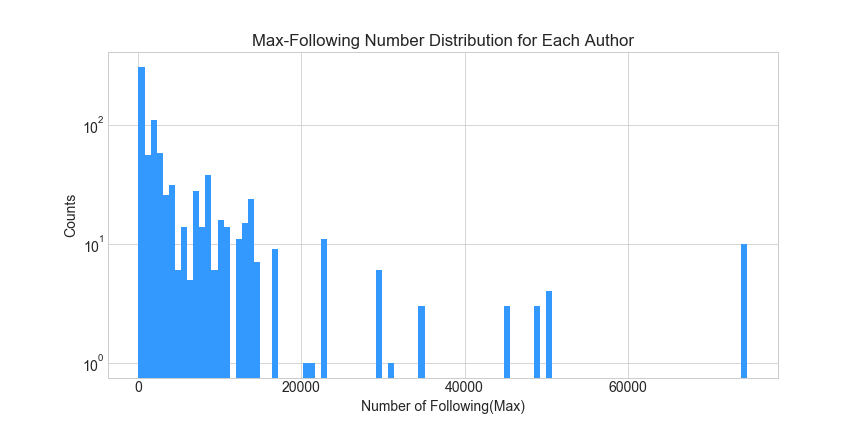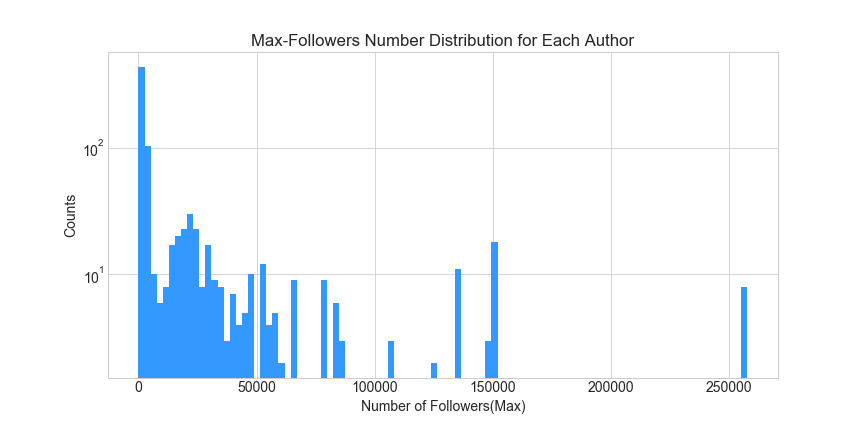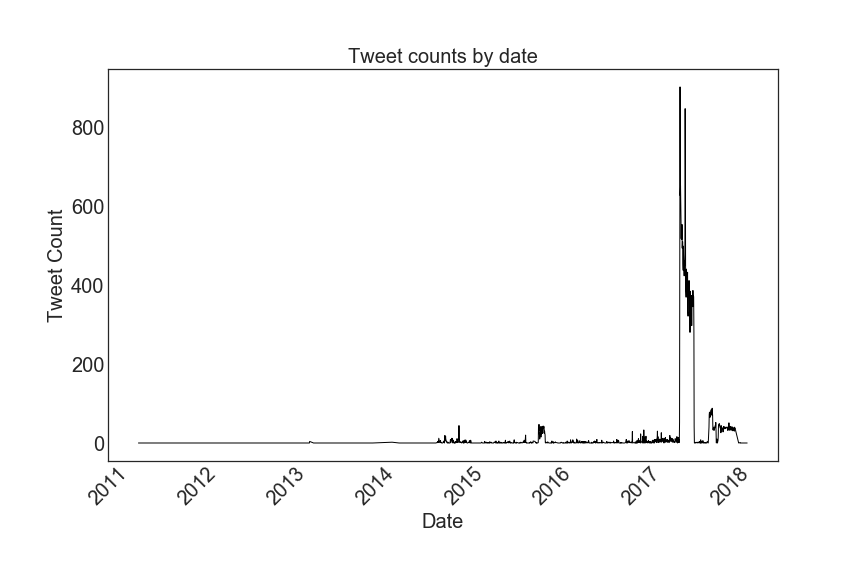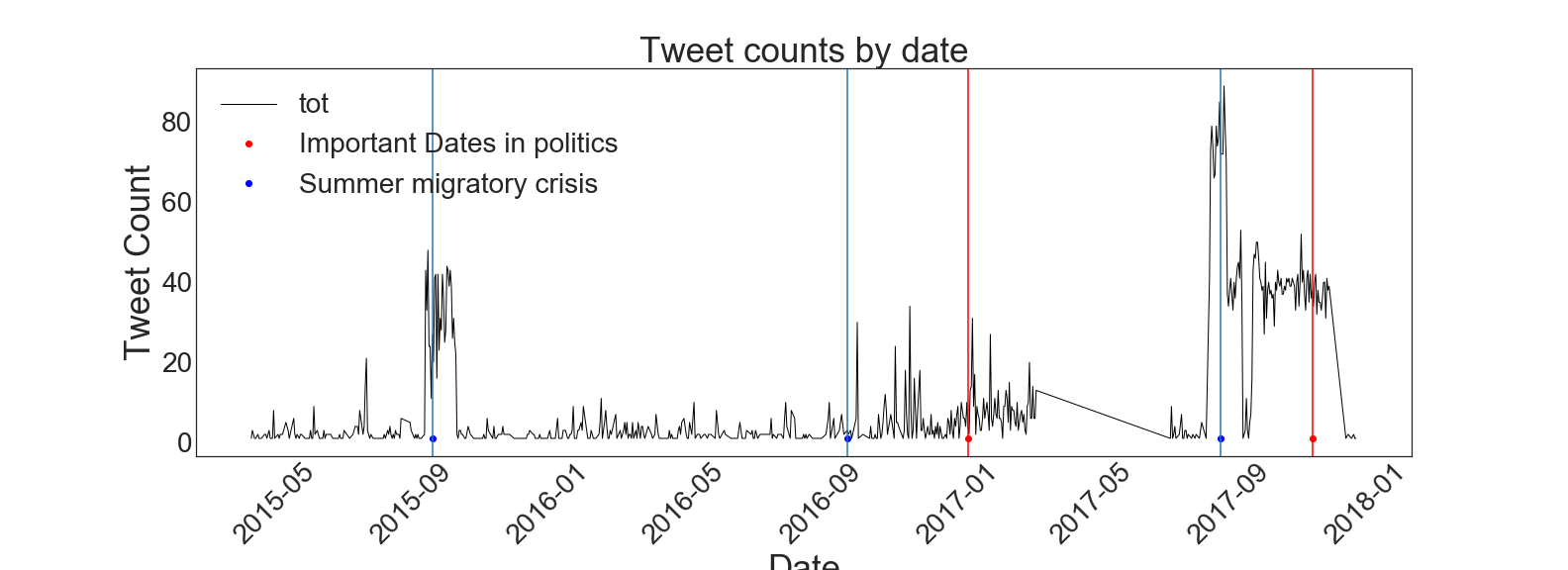We take a closer look at the proportions of the phenomenon with respect to the Italian part of the IRA tweets.
Followers and Following
Although figures on this side has to be taken with caution, since we cannot rule out altogether the possibility of there being bots and scams, the data show that proportions are quite impressive in terms of number of following,

and followers:

The following histogram (in log scale, as the previous ones) sums up the daily activity of trolls, in terms of the average number of tweets produced every day:

It looks like trolls try to cover all the spectrum of sizes and activity levels: always under the aforementioned caveat, some of them are extremely prolific, some others have a low key profile. We will see this tendency in virtually all of the topics we consider: the idea is probably the fact that trolls try to engage as wide a public as possible.
Time Analysis
Is there a peak of activity of trolls during significant moments of the past years? If trolls intend to influence our perception of politics and society, we would expect them to give relevance to disruptive events, crisis and elections and to be more active on these occasions.
To get a visual intuition of this fact we plot the historical evolution of the number of tweets per day.

We observe a period of exceptional activity in the first months of 2017. These corresponded to months of political tension across Europe due to the presence of numerous terrorists’ attacks: London, Stockholm, Paris, St Petersburg, Manchester were among the cities which witnessed these attacks. Of course Russian trolls would use the rise of Islamic terrorism as a sign of the difficulties of Europe and as a way to support the anti-immigration messages of populist parties.
We now zoom in on the other months and look for further evidence of the divisive strategy of trolls.

We highlighted:
-
migratory crisis;
-
the Italian constitutional referendum, whose outcome was one of the main causes of the fall of the centre-left party;
-
the build-up to the general elections.